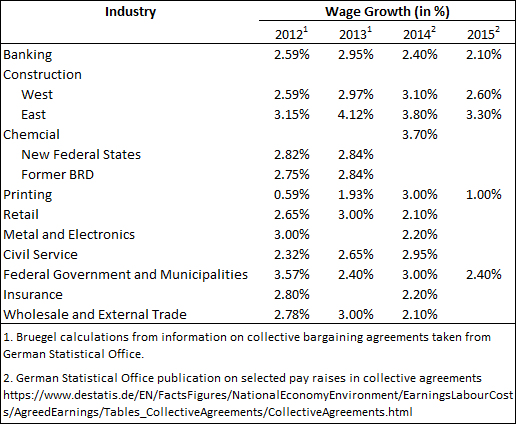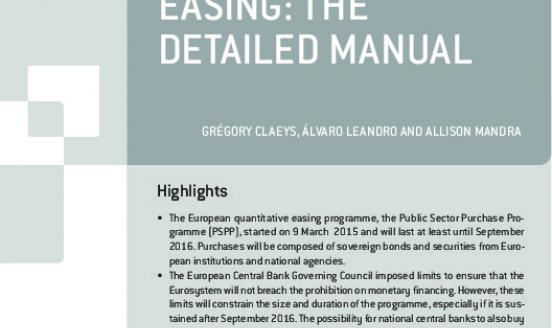Is low inflation translating into lower wage growth in Germany already?
Low inflation in Germany is a big concern not just because of its importance for the euro area aggregate but also because it makes relative price adju
Persistently low inflation across the euro-zone has motivated calls for more action from the ECB. Low inflation in Germany is a big concern not just because of its importance for the euro area aggregate but also because it makes relative price adjustment for the euro area periphery harder. In this blog post, we look at recent wage growth in Germany and scheduled pay increases determined through collective bargaining agreements for 2015.
Given that inflation rates have fallen substantially and German headline inflation was 0.2 percent in December, due in part to the low oil prices, a big question is to what extent, if at all, wage negotiations will factor in lower inflation. IG Metall, one of the main German unions, in its demands for a 5.5 percent increase, still expects 2 percent inflation. Meanwhile, in response to the chemical industry’s demand for an increase of 4-5 percent in the negotiations upcoming at the end of January, the head of the employer association, BAVC, noted that with low productivity and inflation in the zero-point area, such an increase would be unlikely.
In the table below, we show the agreements that have already been made for 2015. So far, the picture points to lower numbers than in 2014, potentially suggesting that the low inflation rates have been taken into account already.
Collectively bargained wage growth remains strongest in the construction industry with increases of 2.6 percent in Western Germany and 3.3 percent in Eastern Germany in 2015, although this is down from 3.1 percent growth in Western Germany and 3.8 percent growth in Eastern Germany in 2014. Also worth noting is a decline from 3 percent growth in 2012 in the metal industry to 2.2 percent in 2014. Though the printing industry, which experienced the lowest relative growth in both 2012 and 2013, saw a sizeable increase to 3 percent in 2014, growth in 2015 has tempered to 1 percent . Along with the metal and chemical sectors, negotiations for the retail, civil service, insurance, and wholesale & external trade sectors are set to take place throughout the winter and spring.
Nominal wage growth in Germany was 2.5 percent in 2012, 1.9 percent in 2013, and 2.8 percent in 2014, which was above the Euro area average for all years. In terms of real wages, growth in Germany was above euro area average only in 2014.[1]

[1] Using AMECO nominal compensation per employee for the total economy and HICP
